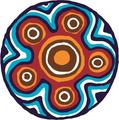Year 1 Term 1 Overviews

Dear Year 1 Families,
Welcome back to school for 2024! This year we have eleven Year 1 classes and the teachers are:
| 1A – Lauren | 1B - Tegan | 1C – Kaitlyn |
| 1D - Stephanie | 1E - Skye/Zahra | 1F - Hayley S/Ellie |
| 1G – Ljubica | 1H - Justine | 1I - Julie/Pallavi |
| 1J - Hayley M | 1K - Kyle | Learning Specialist - Danielle |
The Year 1 teachers are extremely proud of the Year 1 student’s return to school and are looking forward to watching them grow as learners.
Literacy
Reading will be a priority for all Year 1 students with a larger emphasis on comprehension of texts (understanding) and text features. As your child begins to develop their reading skills through decoding (solving the words) and fluency (notice and using punctuation to make meaning), they will encounter a larger variety of Fiction and Non-Fiction texts which will further develop their love for reading. This term in reading, students will focus on identifying the purpose, genre and features of a text (Fiction and Nonfiction), developing their ability to infer, making text to self connections and summarising the important parts of a text. To support the development of reading, students will engage in daily guided reading sessions, reading conferences, buddy reading, independent reading and serial class reading.
This term in writing, Year 1 students will engage in phonics as well as handwriting practice to understand that letters and sounds can be combined to make words. They will learn how writers develop their ideas and use this as inspiration to create their own poetry and personal recounts. Using their knowledge of letter sounds, High-Frequency-Words, syllables and regular spelling patterns, students will write sentences that include one or more ideas and draw a picture to add detail. As authors, they will form upper- and lower-case letters to present their writing, experiment with adding and deleting sounds to create new words, and read back their writing to ensure that it makes sense.
Numeracy
This term in Numeracy, Year 1 students will begin the term by learning about representing and interpreting data as well as drawing strong connections to maths in their lives through a focus on location. Students will practise giving and following directions using specific vocabulary to successfully reach a destination. Students will explore fractions (identifying half) through paper folding of different shapes and exploring terms such as ‘equal, whole, same, part’. Place value will be a core focus area throughout the whole year, especially in Term 1, where the students will be investigating counting efficiency (ones, twos, fives and tens) and describing counting patterns. Further, students will solve simple addition and subtraction problems using a range of strategies, such as counting on and partitioning. Throughout the term, students will continue to be exposed to different mathematical situations where they will be required to problem solve using the skills of modelling, diagrams and equations. The term will conclude with students learning 2D shapes and 3D objects. To complement this unit, students will be using informal units to measure and order objects based on length, mass and capacity.
Unit of Inquiry - Wellbeing and Health
This term, students will explore how ‘our decisions impact our physical and mental health’. Students will understand effective calming strategies as well as how to communicate and express their emotions to keep a healthy mind. They will use critical thinking skills of asking questions to reflect on their health choices, such as “what does a healthy lunchbox look like?”. Students will work together to explain what a healthy home and school environment looks like, sounds like and feels like. By the end of this inquiry, students will reflect how our personal choices affect our health now and in the future.
Ways to Help Your Child At Home:
Home Reading - We have started our Home Reading program. The expectation is for your child to read their take home book 5 nights a week, answer some comprehension questions that an older family member asks them and record the title, date and a comment in the yellow reading journal themselves. Take home books are for enjoyment and for your child to practise their reading strategies, and are not meant to be a challenging task for your child.
Learning Apps - This year at DCC we will be using Wushka to support your child's reading at home. To support numeracy at home students will have access to IXL. Log in details for both of these will go home in the coming weeks.
Learning Goals - Your child’s individualised learning goals are listed on Compass (starting at the end of Week 5). There is a Reading goal, a Writing goal, a Maths goal, and a goal focused on dispositions and skills around social learning for your child. Please read these and support your child by going through the suggested strategies to help at home. You will also be informed of your child’s achievement of these goals.
Kind regards,
Year 1 Team
